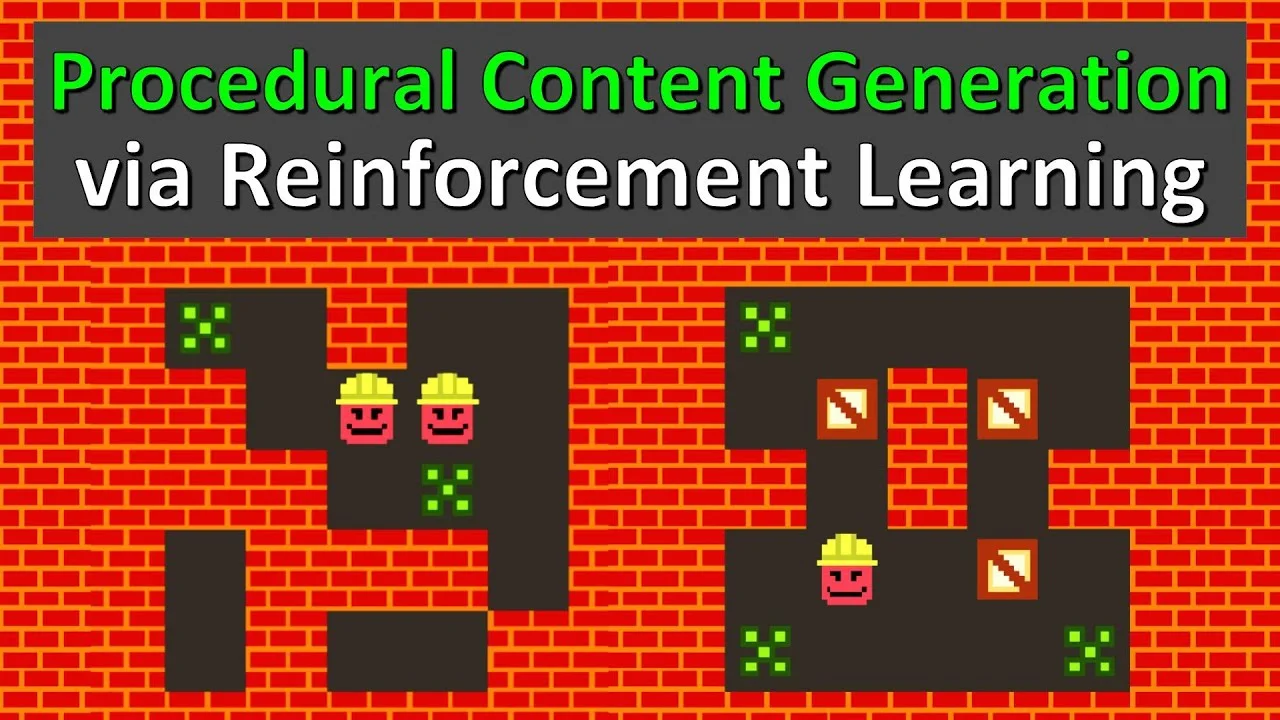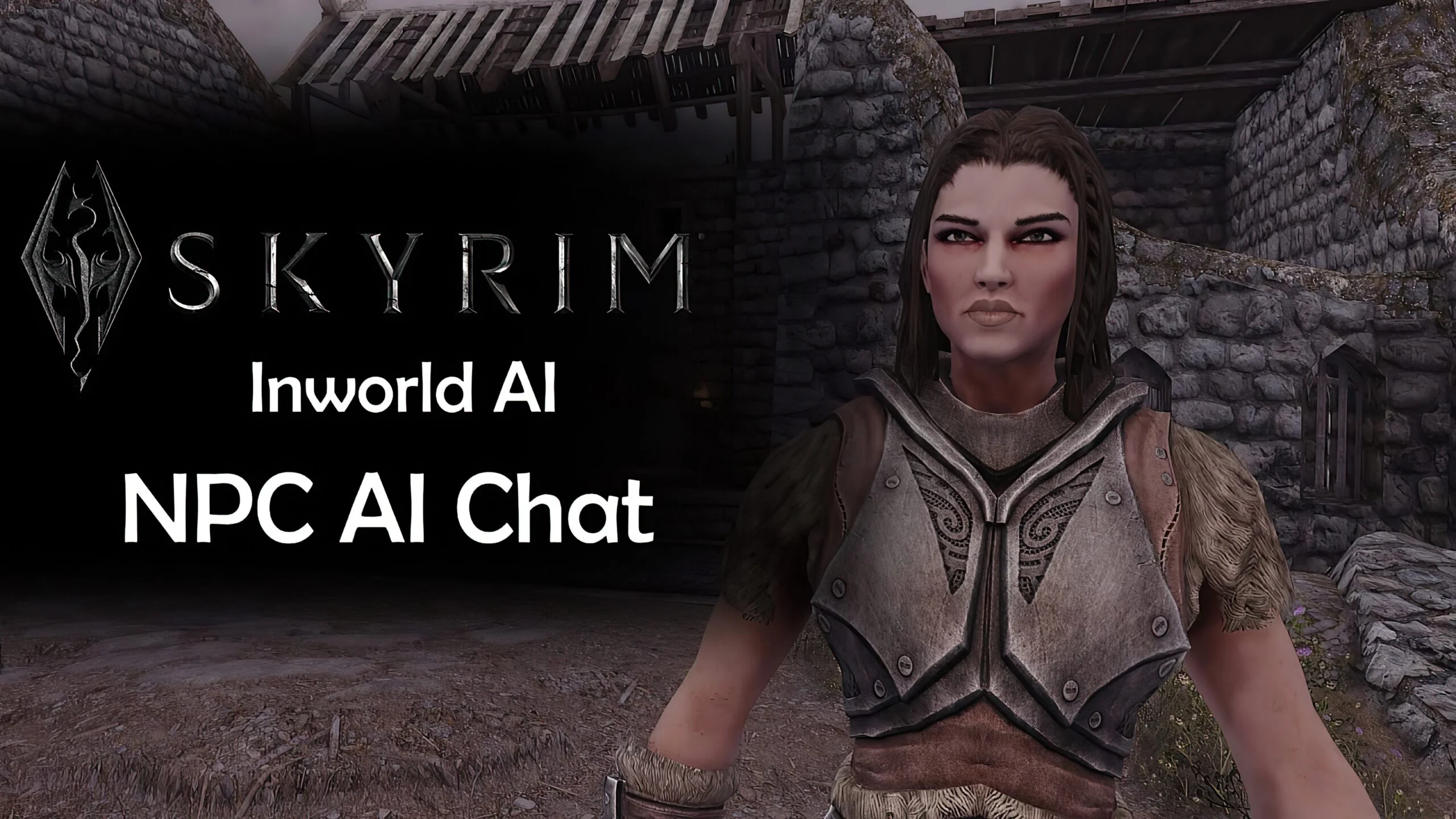In recent years, the gaming industry has witnessed a significant transformation with the integration of Artificial Intelligence (AI). As developers seek to create more immersive, challenging, and dynamic gaming experiences, AI has emerged as a game-changer. AI reshapes how games are designed, played, and experienced, from non-player character behaviors to procedural content generation. This article delves into the world of AI in game development, exploring its various forms, benefits, and potential applications, as well as the profound impact it has on shaping the future of gaming.
What is AI in Game Development?


AI, or Artificial Intelligence, in game development refers to the integration of intelligent algorithms and systems that enable computer-controlled entities (commonly known as non-player characters or NPCs) to exhibit human-like behaviors and decision-making capabilities within a video game. AI empowers games to adapt, learn, and respond dynamically to players’ actions, creating more immersive and challenging experiences. It allows game developers to design virtual worlds where characters can learn from their interactions, adapt to changing circumstances, and develop personalized strategies based on player behavior. AI in game development is a powerful tool that enhances gameplay, adds depth to narratives, and creates new possibilities for creating interactive and engaging gaming experiences.
Read more: AI Dialogue is Here. Can We Use it in Cool Ways?
Types of AI in Gaming


In gaming, developers can implement several types of AI to create different levels of challenge and realism. Here are some common types of AI in gaming:
- Rule-Based AI: This type of AI operates on predefined rules and conditions set by the game developers. NPCs follow specific instructions based on these rules, making their behavior predictable but effective for certain game mechanics.
- Learning AI: Learning AI uses machine learning algorithms to adapt and improve their behavior based on experience and player interactions. They can adjust strategies and decision-making over time, providing a more dynamic and responsive gaming experience.
- Fuzzy Logic AI: Fuzzy logic AI allows NPCs to make decisions based on degrees of truth rather than strict binary choices. It enables more natural and nuanced behaviors, making characters seem more human-like in their responses.
- Goal-Oriented AI: NPCs with goal-oriented AI have specific objectives they aim to achieve. They prioritize actions based on these goals, providing a sense of purpose and direction to their behavior.
- Neural Networks AI: This type of AI mimics the structure and functioning of the human brain. It can process and learn from complex data, enabling NPCs to adapt to new situations and learn from their mistakes.
- Reactive AI: Reactive AI focuses on immediate responses to the player’s actions and the game environment. NPCs react quickly to changes in their surroundings, making them highly responsive adversaries.
By combining different types of AI, game developers can create diverse and engaging gameplay experiences that challenge players and bring virtual worlds to life.
Top 6 Benefits of AI in Game Development


AI brings numerous benefits to game development, revolutionizing the gaming experience for players and developers alike. Here are the top six advantages of AI in game development:
- Enhanced Gameplay: AI-powered NPCs and enemies can provide more sophisticated and challenging gameplay experiences. Their adaptive behaviors and strategic decision-making make interactions with them feel more dynamic and unpredictable, increasing player engagement.
- Personalization: AI enables game developers to tailor experiences to individual players. AI can create personalized content, difficulty levels, and in-game rewards by analyzing player data and preferences, enhancing player satisfaction and retention.
- Procedural Content Generation: AI can generate vast amounts of content, such as levels, maps, and quests, automatically. This procedural content generation saves time for developers and ensures that players have a diverse and ever-changing gaming environment.
- Realistic World Simulation: AI can create realistic simulations of virtual worlds, making game environments more immersive and believable. NPCs and characters can interact with each other and the game world, simulating real-life behaviors and interactions.
- Bug Detection and Testing: AI can assist in bug detection and game testing processes. By identifying patterns and anomalies in code and gameplay, AI helps developers detect and fix issues faster, leading to more stable and polished games.
- Adaptive Difficulty Scaling: AI can analyze player performance and adapt game difficulty accordingly. This feature ensures that players are consistently challenged at a level suitable to their skill, preventing frustration and boredom.
By harnessing the power of AI, game developers can create captivating and cutting-edge gaming experiences that keep players coming back for more. From improved gameplay mechanics to personalized content, AI’s influence on game development continues to shape the gaming industry’s future.
Use Cases of AI in the Gaming Industry


AI has found many use cases in the gaming industry, transforming how games are designed, developed, and played. Some prominent use cases of AI in gaming include:
- Non-Player Character (NPC) Behavior: AI-driven NPCs can exhibit more realistic and dynamic behaviors, making them feel like real opponents or allies. AI enables NPCs to adapt to changing circumstances, learn from player interactions, and offer unique responses, enriching the gaming experience.
- Procedural Content Generation: AI algorithms can generate vast and diverse game content, such as landscapes, maps, and quests. This capability allows developers to create expansive game worlds without manual design, ensuring endless possibilities for players to explore.
- Natural Language Processing (NLP): AI-powered chatbots and virtual assistants can enhance player engagement by providing real-time support, guidance, and information within the game. NLP enables players to interact with the game world using natural language, creating a more immersive and user-friendly experience.
- Dynamic Difficulty Adjustment: AI can dynamically analyze player performance and behavior to adjust the game’s difficulty level. This ensures that players are consistently challenged and engaged, promoting a more enjoyable and rewarding gaming experience regardless of their skill level.
- Play Testing and Bug Detection: AI can assist in the testing and debugging processes, automating repetitive tasks and identifying potential issues in the code. This speeds up the development cycle, reduces human errors, and ensures that games are more stable and bug-free upon release.
- Player Behavior Analysis: AI algorithms can analyze player data and preferences to understand player behavior better. This valuable insight helps developers tailor in-game content, promotions, and marketing strategies to specific player segments, maximizing player retention and monetization.
- Virtual Assistants and Voice Commands: AI-powered virtual assistants, like smart speakers or in-game AI companions, enable players to interact with the game using voice commands. This intuitive interface adds a new level of immersion and convenience to gaming experiences.
The adoption of AI in the gaming industry continues to grow, paving the way for more innovative and captivating game experiences. As AI technologies advance, we can expect even more exciting use cases and possibilities that will shape the future of gaming.
Scope of ML and AI in Game Development Process and Gaming


The scope of Machine Learning (ML) and AI in game development and gaming is immense and continues to expand rapidly. ML and AI technologies offer unprecedented opportunities for enhancing various aspects of the game development process and improving the overall gaming experience.
- Procedural Content Generation: ML algorithms can generate game content, such as terrain, levels, characters, and items, dynamically and procedurally. This approach enables developers to create vast and unique game worlds with minimal manual effort, providing players endless possibilities and replay value.
- Player Personalization: AI can analyze player behavior, preferences, and skill levels to deliver personalized gaming experiences. Games can adapt their difficulty, content, and challenges based on individual players’ interactions, making the experience more engaging and enjoyable.
- Realistic NPC Behavior: ML-powered AI allows non-player characters (NPCs) to exhibit more realistic and adaptive behaviors, making the game world feel alive and immersive. NPCs can learn from player actions and interactions, creating dynamic and responsive virtual opponents or companions.
- Dynamic Game Balancing: AI can analyze gameplay data and balance game mechanics in real-time to optimize the overall gameplay experience. This ensures the game remains challenging yet fair, leading to higher player satisfaction.
- Anti-Cheating and Security: ML and AI algorithms can detect and prevent cheating in multiplayer games by analyzing player behavior patterns and identifying suspicious activities. Additionally, AI can enhance security measures to protect players’ data and privacy.
- Voice and Gesture Recognition: AI-powered voice and gesture recognition systems enable players to interact with games using natural language and movements, enhancing immersion and accessibility.
- Enhanced Graphics and Visuals: AI techniques like deep learning can be used to upscale low-resolution textures, improve rendering quality, and create realistic visual effects.
- Intelligent Game Design: AI can assist game designers in creating well-balanced levels, quests, and puzzles by generating and evaluating various design iterations.
- Automated Game Testing: ML and AI can automate the game testing process, identifying bugs, glitches, and performance issues more efficiently than traditional manual testing.
- Dynamic Narrative and Storytelling: AI can drive dynamic storytelling by adapting the game’s narrative based on player choices and interactions, leading to more engaging and branching narratives.
Integrating ML and AIaaS technologies in game development and gaming is transforming the industry, pushing the boundaries of what games can achieve and delivering more immersive and personalized experiences for players. As these technologies continue to advance, the scope for ML and AI in game development will only expand, opening up new creative possibilities and revolutionizing the way games are developed and enjoyed.
Conclusion
In conclusion, integrating AI in game development has revolutionized the gaming industry, unlocking new realms of creativity and enhancing the overall gaming experience. From procedural content generation to dynamic storytelling and personalized gameplay, AI-driven technologies have reshaped how games are designed, played, and enjoyed. As the field of AI continues to evolve, we can expect even more exciting advancements in game development, with AI-driven features becoming increasingly sophisticated and integral to the gaming experience. Developers and players alike stand to benefit from the continuous growth and implementation of AI in the gaming world, leading us towards a future where games are more immersive, intelligent, and engaging than ever before.


